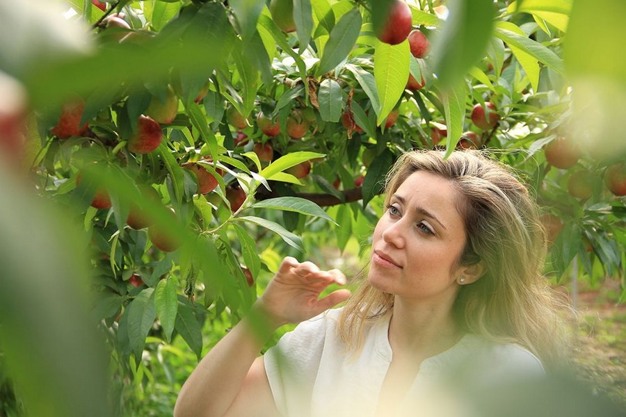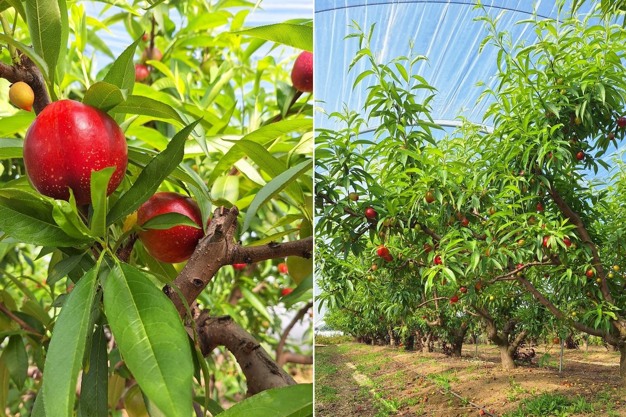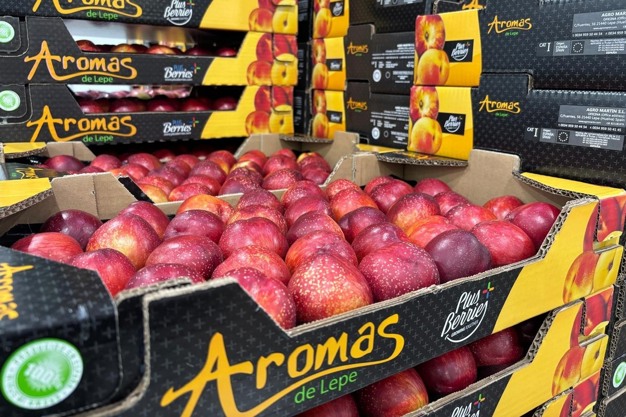This year, the greenhouse stone fruit harvest started earlier than usual, on March 10, although supply has remained limited so far. There won't be a stable supply until April, which is also when supply lines to large-scale retail will open up. For now, a good production is expected thanks to a good accumulation of cold hours, and the market is also receptive due to the low supply of stone fruit and other fruits.
 © PlusBerries
© PlusBerries
"We have never harvested stone fruit as early as this year," says Victoria Martín from the marketing and sales department of the Plus Berries group. "Due to a period of warm days in December, we had some early flowering, so we've been harvesting some kilos of nectarines and peaches, although just small quantities aimed at Spain's traditional market. From now on, our peach, nectarine, plum, and apricot volumes are going to start increasing, and so we'll be able to start supplying stable volumes to retailers."
According to Victoria Martín, stone fruit trees have had a good winter rest, with more than 250 hours of cold, which will have a beneficial effect on the quality and Brix of the fruit.
 © PlusBerries
© PlusBerries
"Due to the constant rainfall, it has not been possible to take preventive action against diseases caused by excess humidity in open ground crops or to apply the necessary fertilizers and carry out the thinning. However, since our crop is protected under plastic, we have managed to keep its health at optimum levels, so we can be sure to be among the first to have supply with guaranteed quality and volume," she says.
For now, Plus Berries expects a normal stone fruit production in its earliest plantations, with only some uncertainty about Extremadura's plum volumes due to the abundant rainfall during the pollination period, although it's still too early to make any assessments.
 © PlusBerries
© PlusBerries
"We are expecting a good production, perhaps even better than last year's, thanks to the varietal reconversion carried out in recent years and the entry into production of earlier varieties that are naturally resistant to disease. This has allowed a healthier and more sustainable crop," says the company's Marketing and Sales Manager.
At the moment, the availability of stone fruit in European markets is low due to a more premature end to the season in Chile and South Africa, partly because of the high demand due to the good weather in the northern countries. "Now there is only limited supply of fruit from the Southern Hemisphere, and we will be among the first to export. People are eager to buy stone fruit because there have been less citrus and berries, among other crops, due to the impact of the rains," says Victoria Martín.
 For more information:
For more information:
Victoria Martín
Grupo Plus Berries
Tel.: 0034 673109821
Tel.: 0034 959504454
victoriamartin@plusberries.com
plusberries.com
agromartin.com
